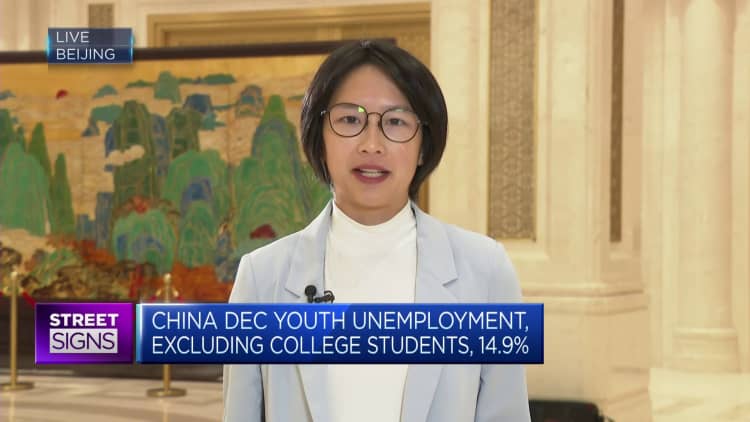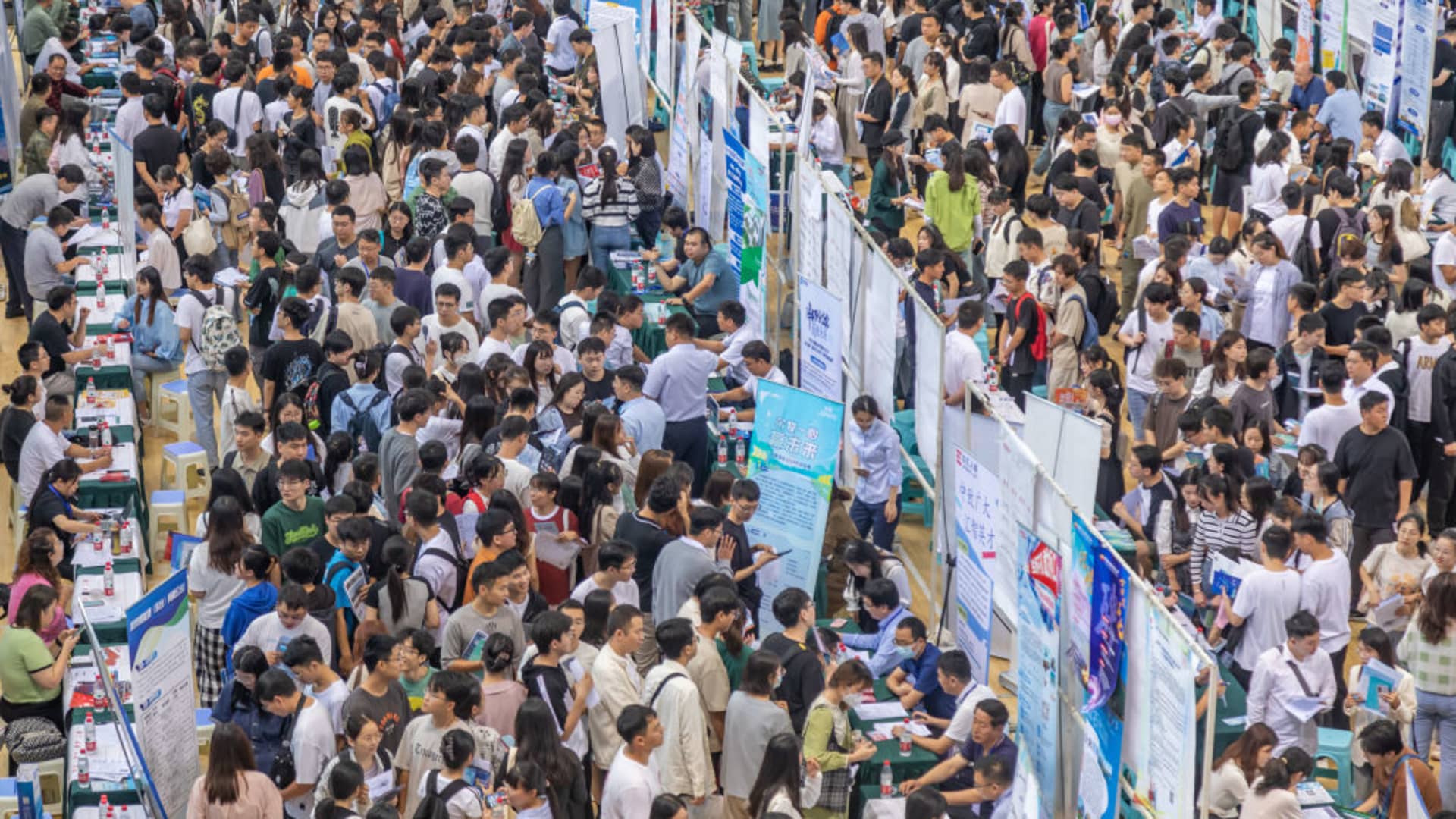ZHENGZHOU, CHINA – SEPTEMBER 22: Students attend a job fair for graduates at Zhengzhou University on September 22, 2023 in Zhengzhou, Henan Province of China. (Photo by VCG/VCG via Getty Images)
Vcg | Visual China Group | Getty Images
China’s youth unemployment will likely stay elevated this year due to a lingering mismatch, according to the Economist Intelligence Unit. It explained the sheer number of new graduates, who often target hot manufacturing sectors, far outstrips jobs — the majority of which are still focused in the lower-skilled sectors.
Even though unemployment among China’s young people should dissipate starting next year — when the country’s working-age population declines – the effects of high youth unemployment will remain long after that, the consultancy added.
“Despite the upturn in China’s labor market as a whole, the biggest improvements are concentrated in middle-aged groups and migrant workers,” EIU analysts said in their China 2024 outlook report released Thursday.
“In contrast, the post‑Covid recovery has not eased the slack in the youth labor market. The surge in fresh graduates has not been met by a commensurate increase in new job opportunities. New hires are still being offered lower wages amid the labor oversupply,” they added, saying automation poses a further threat to the number of jobs in China.
Excluding students, the unemployment rate for young people aged 16 to 24 in the world’s second-largest economy stood at 14.9% in December, according to monthly data from China’s National Bureau of Statistics released last Wednesday. This compares to China’s broader urban unemployment rate of 5.1% for the same month.

China’s youth unemployment rate had previously climbed to record highs exceeding 20% before the country’s National Bureau of Statistics temporarily suspended the release of the group’s unemployment rate last summer, citing the need to reassess calculation methods.
EIU pointed out, however, extended high youth unemployment will have residual effects. From weaker lifetime earnings and purchasing power to delayed marriages and child bearing, EIU noted these issues would also bear fiscal implications for Beijing in the form of increased need for welfare.
This will likely compound the economic impact from China’s demographic decline, which registered a second straight annual population reduction last year. China’s population shrunk by more than 2 million people to 1.41 billion in 2023 from the prior year. The population had declined by 850,000 people in 2022 from 2021.
Structural unemployment
China’s real estate troubles are closely intertwined with local government finances, since they have historically relied on land sales to developers for a significant portion of their revenue. This has intensified financial risks and roiled consumer confidence, as consumer prices teeter on the verge of deflation.

China’s post-Covid economic recovery has been consequently lackluster, with China’s top leaders warning the process would be “tortuous” as they abstained from massive stimulus.
Instead, Beijing has been trying to bolster growth in a targeted manner, focusing on high quality growth in sectors that yield greater economic value.
“Under China’s industry-driven strategy, more top talents are migrating towards China’s emerging manufacturing sectors, such as electric vehicles and integrated circuits, a trend that will help to improve productivity in those industries,” EIU said Thursday.

“However, the bulk of jobs created are low- or medium- skilled ones that have little appeal to university graduates, many of whom now possess even higher-level degrees following an expansion of postgraduate enrolment during the pandemic,” they added.
“As a result, China has struggled to absorb the labor force who left tutoring and property, two sectors which were battered by government crackdowns.”
— CNBC’s Evelyn Cheng contributed to this story.

